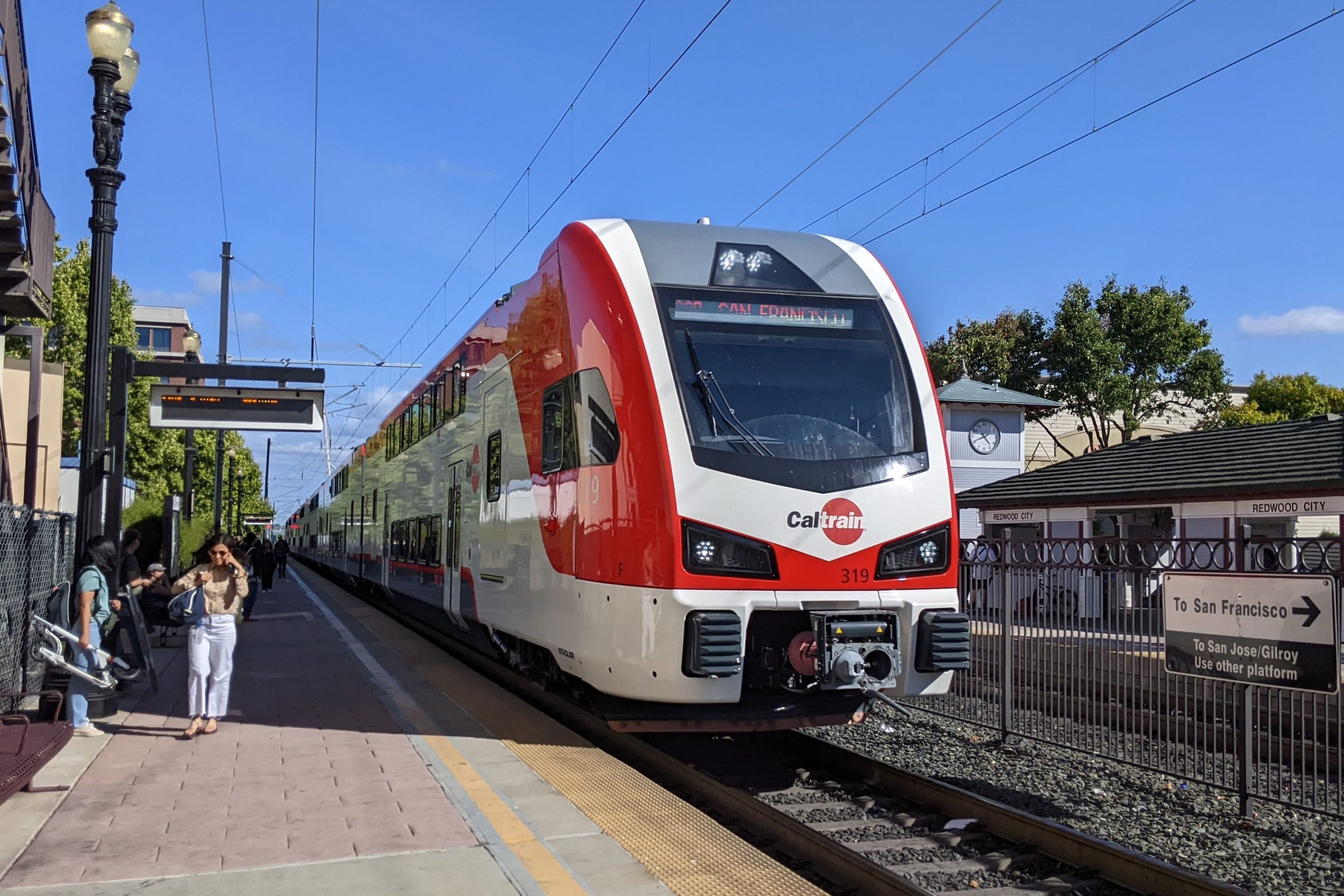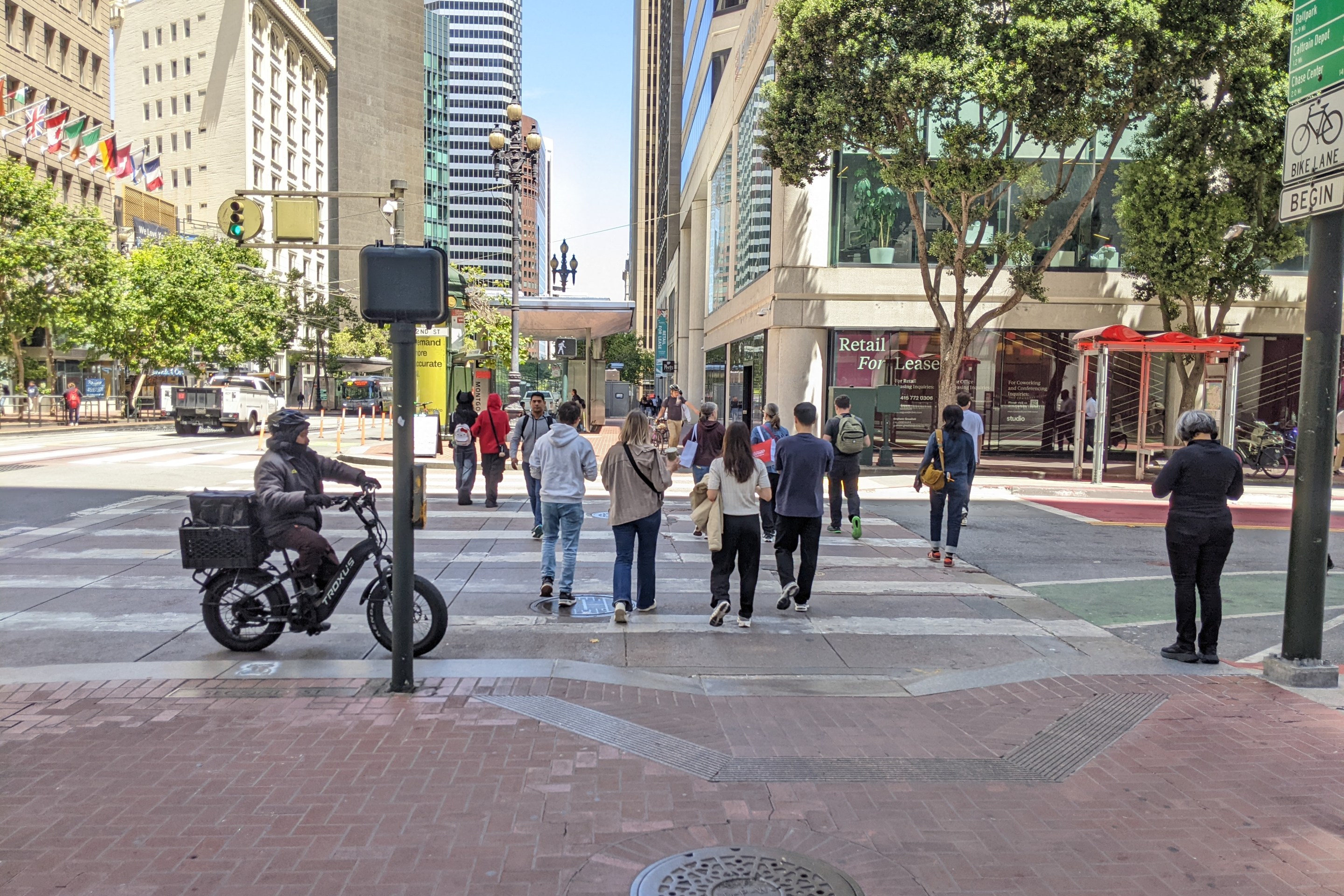 Flickr photo: Anna L Conti
Flickr photo: Anna L Conti In no uncertain terms, Muni operators rejected a proposal yesterday for a package of concessions that would have saved the MTA nearly $15 million over the next two years, while reducing operator layoffs by a third. But the conclusiveness of the vote - 857 in favor, 575 against - masks a murkier truth: Many of the operators didn't feel the union adequately informed members about the details of the proposal.
None of the drivers interviewed for this story would use their name, citing the union's instructions to its members against doing so. But while opinions on the proposal varied, there was clear consensus about the widespread uncertainty surrounding the vote. That might explain in part why over 500 operators didn't vote at all on the proposal.
"There was a lot of confusion among the members about the vote," said an operator on the 14-Mission, who said she's been with Muni for two years. "I heard bus drivers saying they weren't sure what to vote on it. They were confused by the literature."
She was off work yesterday and didn't get a chance to vote, she said.
Documents detailing the plan are available on the Transport Workers Union Local 250A website, but some operators said the documents weren't widely distributed and felt they weren't clear about the details of the proposal.
A ten-year Muni veteran who was driving the 9L-San Bruno today said he studied the plan closely and thought it was a good deal, but also thought operators weren't properly informed. "I don't think they informed everyone about what it really was," he said.
According to this operator, some coworkers had strong opinions about the proposal without really understanding it. "They think they know, but don't really," he said. "People might support it if they were better informed."
Even with the confusion surrounding the vote, he said some coworkers were mad at him for supporting it. For his part, the plan seemed a fair way to help balance the budget while saving younger operators from having their position cut. "Everyone has to give a little in hard times," he said. "And if they don't give, the younger operators will get laid off."
Another operator, an eight-year veteran who was taking his break between runs on the 2-Clement line this afternoon, said he voted against the plan. His concern was that other unions across the city weren't giving back an equal amount - especially the fire and police departments - and the pain should be spread more equally. "We felt, why should we, if other unions aren't making concessions," he explained.
Perhaps if the union representatives had explained the plan better, it would have had more of a chance, he said. "It was very last minute," he said of the vote, which he mostly heard about through his division and from coworkers. "There were no formal meetings on it, and we didn't see anything written down."
If the union comes back with a better deal, and explains it more clearly this time, he said he might vote for it.
On the 31-Balboa line, an operator said he agreed with what TWU President Irwin Lum said about the vote: operators wanted a hard guarantee that the plan would stave off layoffs, service cuts, and fare increases. He wouldn't comment further on the matter, but strongly agreed that there was plentiful confusion among the members about what was proposed.
"The union should have been sweeping through the barns" with the details, he said.
Several of the operators said they and their colleagues were worried the concessions might not be as temporary as the agreement stated.
"In terms of each benefit, if they give it up this year, is it coming back?" asked the 14-Mission operator who missed the vote on her day off.
She's only been at Muni for two years, so her position could be among the 170 operators eliminated under the MTA's current plan, but she's not certain the vote will ultimately make a difference one way or another. "I don't believe the vote will stop MTA management from doing what they want."
The 9L-San Bruno operator who said he supported the measure was worried the vote would have serious consequencies, and would be a bad deal for young operators in risk of losing their job. "I really think that was a big mistake," he said.
"We are clearly disappointed by the outcome of last night's vote," said MTA Executive Director Nat Ford in a statement. "But we must continue working to find a way forward that reduces the pain that the budget deficit is causing our customers."
Less than a day after the vote was tallied, it's had an unmistakable political impact, with Mayor Newsom now supporting a November ballot initiative that would potentially reduce operator salaries and benefits - and that will likely serve as a bargaining chip in bringing the union back to the table.





